Use of all season tires in winter. Safety considerations are the main incentives to buy winter tires
When signs of winter, in particular, snow and ice, become more and more on the streets, only then the owners of vehicles begin to take care of their cars, and this should be done much earlier. The time when it is necessary to install winter-type tires on a car is now prescribed by law, although this does not mean that driving on tires that do not correspond to the season will be punishable by a fine. For more information about this law and about the measures of influence that apply to unscrupulous drivers, you can check with us.
Will it be allowed to drive a car on all-season tires in winter according to the rules of 2016?
With regard to specific prohibitions, it is forbidden to drive a car with studded tires (winter type) installed in the summer months, the same applies to regular, all-season tires, but already in the winter months. Rubber must have anti-skid spikes, moreover, its presence is mandatory on all wheels. If we consider the issue in more detail, then in summer all types of tires are allowed, except for those with studs, while in winter you can put not only studded tires, but also special, non-studded tires. The marking must contain the symbols M and S, in one form or another, and also contain a snowflake sign, closed by a polygon.
Today we will tell can you drive all season tires in winter 2016 and whether they can be fined for it.
Recall that since January 1, 2015 in Russia it is forbidden to drive on summer tires from December to February inclusive. That is, driving with non-summer tires in winter is prohibited.
However, as we wrote earlier, a fine for this violation has not yet been provided.
What about all season tires? Can you ride it in winter?
All season tires in winter - the law
At the legislative level, everything is clearly spelled out: in winter in Russia, cars must be on winter tires.
What does the law mean by winter tires?
By law, winter tires must be labeled English letters M and S (combinations can be different - "M + S", "M & S", "M S") as well as a pictogram in the form of a three-peak peak with a snowflake in the center.
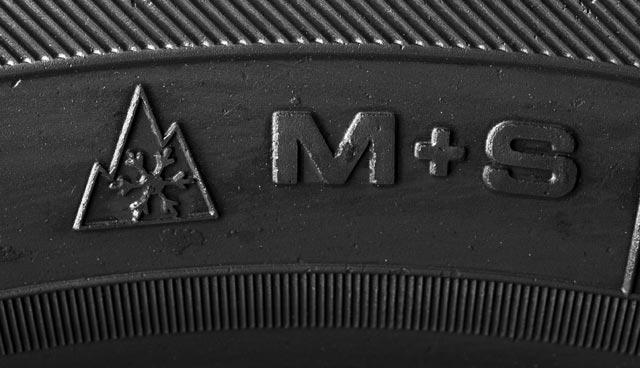
If your all-season tires have such designations, then you can operate it in winter. If they are not, then it is forbidden to ride this all-season in winter.
Penalty for all-season tires in winter
What fine threatens the driver for all season tires in winter if it is not labeled accordingly?
No. The situation here is similar with summer tires. It is forbidden to ride it in winter, but the Code of Administrative Offenses does not provide for a fine for this.
The only fine threatens the driver if the tread on his all-season tires in winter is less than 4 mm deep. For such rubber threatens a fine of 500 rubles.
All season tires - can I drive in winter?
Legally, yes. No one will punish you for driving on all-weather tires in winter, if it is not "bald".
But from a safety point of view, riding all-season tires in winter is a dangerous occupation.
All-weather tires mean its operation both in the winter and in the summer.
But in summer the rubber should be hard, and in winter - soft. Of course, the same rubber cannot be both hard and soft at the same time.
That is why, in the heat, all-weather tires begin to wear out intensively. And in winter, when real frosts come, all-season tires become hard and hard. Driving on such tires, and even more so, emergency braking can easily lead to an accident. In this case, saving on rubber can come out much larger expenses.
On all-season tires, you can ride in the off-season, when the temperature jumps either above or below zero. But for a real Russian winter, it is clearly not suitable.
The topic of our article will be multifaceted and ambiguous, since in its name and in its disclosure it contains whole line complex information. Not allowing to answer them directly and in the forehead. Everything will depend on the situation, on which of life's questions you are looking for an answer, on the preferences of each of us. Once again denoting the boundaries of the topic, we pose the question. Is it possible to ride all season tires in winter? Now let's try to answer it.
As we have already said, the answer will contain several relevant aspects. In particular, these are the technical features of the use of all-weather tires in winter. And, of course, this is a legal issue. After all, we still live in a state where nominally there are some laws. How to maneuver between "it is possible according to the law" and is admissible according to the application, choose the best option. About the agony of such a choice in our article.
Is it possible to drive on all-season tires in winter (technical aspect)
 The first is technical question and the issue of safety when using all-weather rubber (tyres) in winter. It has to be said here. An all-season tire is “not fish, not meat”. That is, it is not sufficiently rigid and plastic in summer, while it has increased tread wear. But in winter it is not soft enough to maintain plasticity and the ability to “cover” the road profile with a tread. That is, excessive rigidity of the rubber will not allow for good contact with the road. In general, this problem has long been known and we discussed it in our article " Which winter tires are better, studded (studs) or liposystem (Velcro)
».
The first is technical question and the issue of safety when using all-weather rubber (tyres) in winter. It has to be said here. An all-season tire is “not fish, not meat”. That is, it is not sufficiently rigid and plastic in summer, while it has increased tread wear. But in winter it is not soft enough to maintain plasticity and the ability to “cover” the road profile with a tread. That is, excessive rigidity of the rubber will not allow for good contact with the road. In general, this problem has long been known and we discussed it in our article " Which winter tires are better, studded (studs) or liposystem (Velcro)
».
In addition, we talked about the tire tread. So specialized tires have a special tread, with sipes. It is they that allow you to effectively cling to every patch of road, like the legs of a newt, and the grooves between them perfectly drain water and consistent dirt, sleet. So if you set it correctly Winter tires, then a specific protector will work for you, with its features. About this in the article " How to put tires in the right direction ».
Well, one more thing we need to say is about proper tire pressure. This is also an important factor. Many people think that summer or winter tires need to be inflated differently. This is wrong. Both are inflated at nominal pressure. We've already talked about this too. Proper tire inflation or what should be the tire pressure
».
In general, as you can see, technical side not so unimportant. And the study of all the components, if you start reading all those articles that we have given, can already take you a very long time. But the most important thing here is that specialized tires will always be better than all-season tires. Nominally, in our opinion, all-season tires can only be driven south of Rostov-on-Don. Throughout the rest of Russia, we would not recommend you to neglect winter tires. Well, now about the legal issue.
Is it possible to drive on all-season tires in winter (legal aspect)
Now about the legality of driving a car if all-weather tires are installed on it, and the season is winter outside the window. Since 2015, a new technical regulation has appeared in the Customs Union (Belarus, Kazakhstan, Russia), namely the “Technical Regulations Customs Union"On Vehicle Safety". It is he who is “attempting” to ensure that in the near future motorists will be fined for using rubber (tires) that do not correspond to the season. Here is what is written in it
Now, in order to be aware of what is written in that very paragraph 5.63, we will quote it.
From paragraph 5.6.3, we can understand that all-season tires can also be driven in winter.

After all, all-season tires are just the same and are marked with the badges "M + S", "M & S", "MS". The only requirement is that the tire tread be at least 4mm or a wear indicator. The law is written not entirely clear, but logically it is! That is, operation with a tread no more than 4 mm is prohibited.
That is, you can already sum up. Regardless of whether a fine for summer tires is introduced in winter or not, it will be possible to drive on all-season tires in winter. That is, there is no penalty for using all-weather tires (tires) in winter. And this position is confirmed by the legislative documents that we mentioned.
Question answer on the topic "Is it possible to drive on all-season tires in winter"
Question: Is it possible to drive on all-weather tires (tires) in winter?
Answer: If you think it's safe, then yes. At the legislative level, there are no penalties for all-season tires in winter
Most motorists are quite zealous about the quality of rubber and suitable tire characteristics on their car. But some representatives of the road fraternity are not particularly worried about this criterion, which makes them a certain threat to all road users. Especially popular is the idea that you can use all-season tires and not spend money on two sets at once. All-season tires are tires with the designation M+S. In fact, this designation does not quite mean all-weather, but only an indication that the rubber is designed for SUVs and can be used in mud or snow conditions (Mud + Snow). However, lovers of economy do not like this explanation, so such tires are considered to be exclusively all-weather.
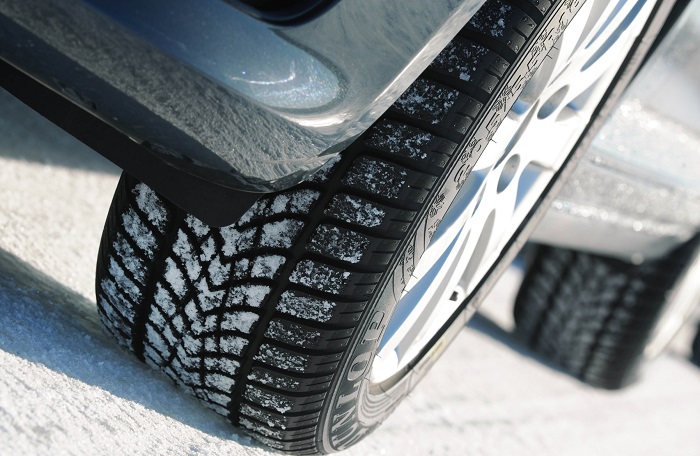
When using such tires, the most unexpected problems can occur. In particular, you may not be too prepared for winter operation, reassure yourself the highest quality use of all-season tires. Owners of cars with such tires may have a certain problem - extra confidence in the quality of the trip on their car. Therefore, there are a variety of accidents and troubles that are associated with low quality rubber. Of course, we can safely say that the quality and properties winter tires Chinese origin with a bargain price no higher than M + S from a good brand, and it will be true. But such an approach does not entitle drivers in Russia to use all-season tires of any type in the winter.
Safety considerations are the main incentives to buy winter tires
Winter tires are not such an expensive pleasure, if you think about what consequences poor quality tires can bring in the cold season. No one wants to think about the significant problems that the installation of low-quality equipment for winter operation can bring, but you need to think and remember this. By installing all-season tires, which a priori cannot be such by definition, you expose yourself to the following dangers:
- at temperatures below -7 degrees Celsius, tires turn into plastic and do not perform their important tasks at all;
- a trip through the snow will be a real test, the snow will clog the tread and turn the car into an unmanaged vehicle sliding on any surface;
- ice is generally contraindicated for such tires, it saves you from having to press the brake pedal, because the latter will not change the behavior of the car in any way;
- wet and cold asphalt, according to the sensations of the trip, will turn into ice for you, the braking distance will increase incredibly;
- the comfort of a car trip in sub-zero weather will be simply terrible, it is also important to remember this when buying all-weather tires;
- traction on cold surfaces will be incredibly poor, starting off on snow or ice is simply impossible.
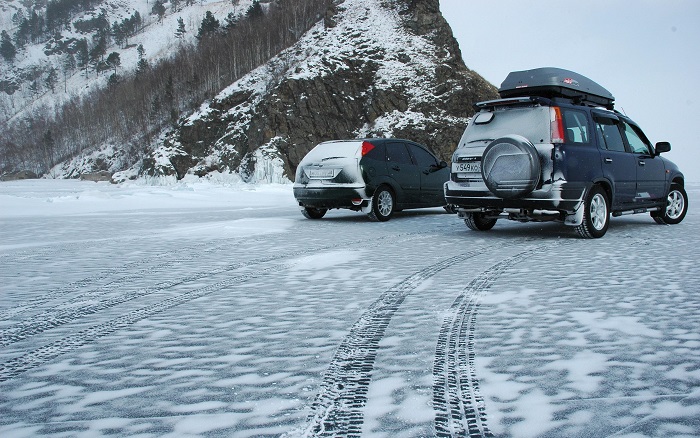
And this is just the beginning of an unpleasant list of problems that the operation of all-season tires will bring you. In most situations, you won't be able to get enough ride feel and comfort because hardened all-season tires don't cushion or perform any important task. This will lead to the fact that the trip by car will be incredibly difficult and very expensive in the future. So it's much better to fork out at the beginning of the season for quality winter tires and get normal tires for this unpredictable season.
Legal grounds for buying winter tires in Russia
In our country, there is a fairly strict law that forces vehicle owners to regularly change tires, installing the necessary tires according to the season. It is also stated that the tread height of winter tires cannot be lower than 4 millimeters, otherwise you will receive a fine of 500 rubles, which will be revised upwards in the near future. Also, a fine awaits car owners who decide to use summer or all-season tires in winter. Among important features laws include the following:
- the operation of tires must be fully consistent with the season, it is forbidden to drive in the cold season on summer tires;
- Tires with the M+S designation may only be used in summer period time and comply with all rules of use summer tires;
- the tread height must be at least 4 millimeters for any type of light winter tires, despite the recommendations of the manufacturers;
- winter tires are considered to be tires that have certain designations on the profile, confirming the quality of operation in the cold season;
- tire brand does not matter, the main definition of legality is the international designation of winter tires;
- in the regions, the framework for the use of winter tires is determined, in the central region we are talking about November 1st or December 1st, depending on the weather.
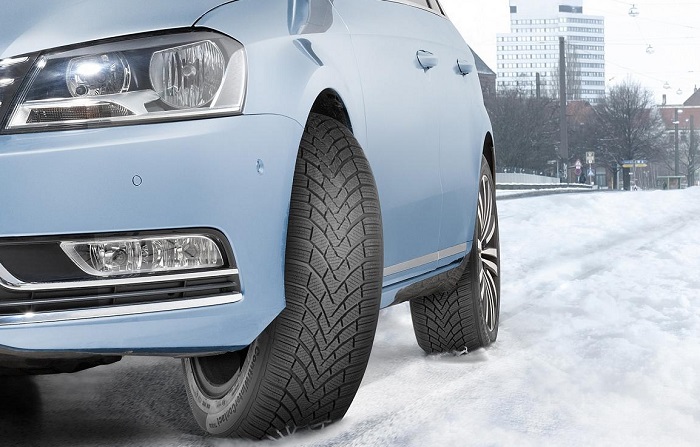
Frankly speaking, the legislative framework on the use of rubber in Russia is quite complicated, even if it does not contain many points. The fact is that legislators adopt the experience of other countries, not really understanding the local features of the operation of machines in each region. It is impossible to compare the conditions for using cars in Moscow and Novosibirsk or Murmansk. Therefore, the legislation is partly regional in nature and cannot be imposed on all regions in one wording. However, the laws are very conditional, and they began to fine for winter tires only in the 2016 season.
What will be the size of the fine for summer tires in winter?
At the beginning of 2016, fines for the use of tires out of season amounted to 500 rubles, as well as for all other popular violations on the roads of Russia. But the revision of this amount has already been repeatedly started in the State Duma of the Russian Federation, so we can count on an increase in the amount of the sanction in the near future.
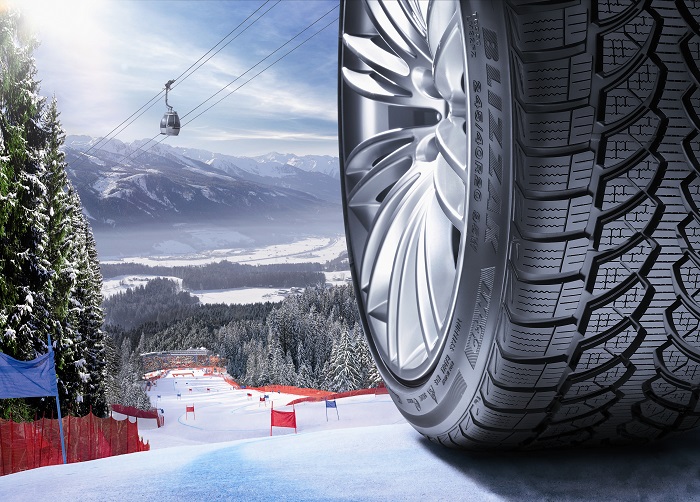
Most likely, the state legislature will not agree to increase the amount of this fine to 5,000 rubles, as promised in some editions of the amendments. But legislators may well raise the fine to 2500-3000. Therefore, it will soon be much more profitable to install high-quality winter tires than to rely on the inattention of traffic police officers.
What tires are better to buy for winter operation in Russia?
Many argue that it is best to purchase Bridgestone, Michelin or Nokian tires. Indeed, the products of these brands are of excellent quality and are one of the best of their kind. Nevertheless, rubber is very expensive, and the justification for buying it turns out to be rather doubtful. However, you can always give preference to the mid-range or even budget tires, but you need to check the quality. By reading reviews and viewing test records, you can choose the best rubber options for yourself:
- Michelin, Nokian and Bridgestone are indeed among the most expensive solutions, they have the best performance and high durability;
- the middle price range is represented by lesser known manufacturers such as Cooper or Kumho, as well as Fulda and Goodrich - this list can include a huge number of brands;
- expensive, but not popular brands among Russian buyers, such as Yokohama, Hankook or Goodyear, have good characteristics, but too high a price;
- among budget solutions you can find Belshina, Nankang, Matador and Rosava, and Kama of domestic production is also in certain demand;
- Chinese manufacturers such as Triangle, Zeta, Goodride, Westlake and other unsound names - all this turned out to be not very high-quality solutions.
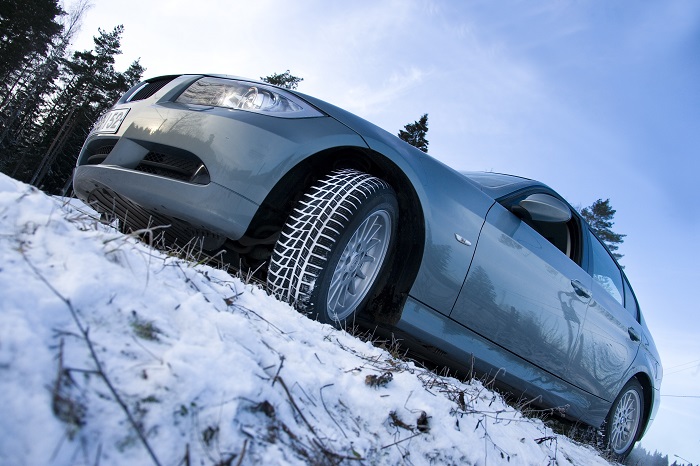
It must be admitted that buying an expensive Nokian turns out to be more profitable than purchasing a budget Kama, since Finnish tires will drive about 50-60 thousand kilometers, while maintaining normal operating qualities. Kama, on the other hand, is enough for 15 thousand, and at the end of its life, the rubber stops showing normal characteristics. However, buying expensive tires requires certain financial investments, so you need to determine an acceptable budget for yourself, and by this factor, start choosing the necessary characteristics of a future purchase. We offer small review some types of car tires from China:
Summing up
You can talk for a long time about the fact that driving in winter on summer or all-season tires is not worth it. But for the driver, this argument becomes relevant only if he himself has experienced the disadvantages of bad tires. It is better to use quality solutions and save potential car repair costs or fines. For many to fully understand this argument, it is necessary to get into trouble on a winter road, but it is better to realize this before certain difficulties arise. Moreover, fines will be raised by law, which will make the trip on your car completely unprofitable, provided that tires are used out of season.
As for the choice of rubber, a lot of advice was given. Use video tests, reviews and expert opinions to determine the best vehicle options for you. You can easily determine which solutions are right for your vehicle by first setting a budget. Further, from the selected category by price, it remains to choose the proposals that are most suitable in terms of characteristics and technical solutions. What winter tires do you put on your car?
Most of the car owners in our country, with the onset of winter cold, replace summer tires with winter or all-weather tires, since it is unsafe to drive on summer tires in severe winters. At the same time, many drivers are interested in the question - is it possible to drive on all-season tires in the cold season.
Manufacturers often impose restrictions on their all-season tires and recommend that they be used only at certain temperatures. environment. In addition, such tires are especially effective in the off-season, and during the summer and winter, these varieties are not suitable for everyone.
All season: for or against?
Each driver has the right to independently choose which tires to install on his car. However, in order to prevent the unpleasant consequences of incorrectly selected tires, it is necessary to install for each season those options that are not prohibited by law. Many motorists prefer to save on tires and purchase all-season varieties.
All-weather tires, it would seem, should have the qualities of both summer and winter varieties. However, not everything is so simple, because a tire cannot be both soft and hard at the same time.
All-season options have a specific tread pattern, which consists of a summer and winter option. At the same time, it is worth mentioning the insufficient size of the blocks, which will not give confidence during the exit from the skid.
At the same time, the value is too large to perform functions in the summer. The indeterminate depth of the grooves will also prevent maneuvers on ice or slippery snow. With such tires, sudden braking is not recommended.
Features of the use of all-weather in summer and winter:
- Universal rubber has a high hardness, so when low temperatures(below 20º C) she "dubeet". At such moments, driving becomes very difficult, and this directly threatens the safety of the driver and passengers.
- In summer, on the contrary, well-heated asphalt can almost melt the all-weather season - sometimes black rubber stripes form on the surface of the coating from slopes, so these varieties are also not intended for hot climates, as they wear out quickly.
The best option for all seasons is a region in which the climate is so mild that there are no noticeable transitions between seasons, and their temperatures practically do not differ.
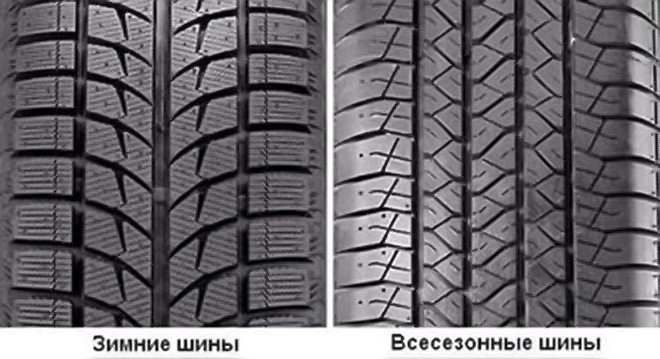
In the conditions of Russian roads, this type of rubber is not recommended to be used - in addition to rapid wear, it can also lead to accidents on the road - in such cases, the driver will lose more from using it than gain.
Legal aspects of using all-season tires in winter
- Appendix 8 and its paragraph 5.5 of the Customs Regulations restrict the use of winter tires in the summer from June to August.
- In addition, paragraph 5.6.3 prohibits the operation of a vehicle that is not equipped with winter tires in winter (December to February).
Accordingly, in summer it is not allowed to use studded treads, and in winter it is forbidden to drive on summer tires. If the climate of a particular region involves long winters, then the local municipality has the right to make its own amendments and increase the duration of the entire winter period.
In addition, in the traffic rules sections, special standards were added that classify tires into three types:
- Summer varieties;
- Tires designed for winter;
However, there is still confusion in the classification of all-season options, since, according to experts, there are only two options that are really suitable for Russian roads - summer and winter.
At the same time, experts note that the all-season, as a rule, does not have sufficient characteristics to operate it in the conditions of Russian realities, both in winter and in summer.
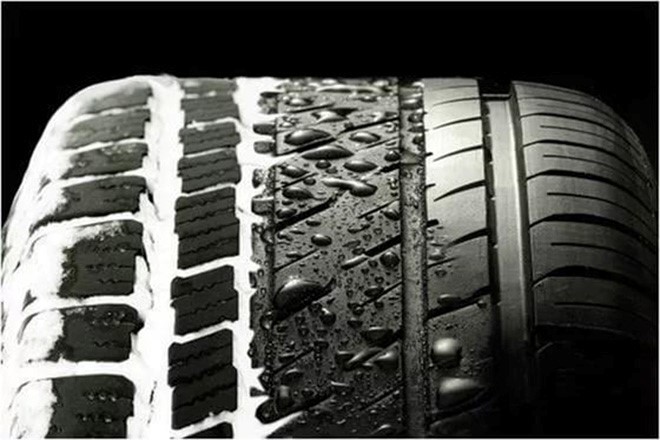
In addition, outside the Russian Federation, such tires are not perceived by the police at all, so it is better to travel to other countries either in summer or winter versions.
The law, however, allows the use of all-weather tires on the territory of the Russian Federation all year round, but only in cases where it has the MS marking and the corresponding graphic image. In the absence of a sign, such varieties can only be used from March to November.
Penalty for using all-season tires in winter
So, is it possible to drive in winter on all-season tires? In October last year, a draft law was considered that would add a new paragraph to Chapter 12 of the Code of Administrative Offenses. He will establish the amount of a fine for violations of the operation of vehicle tires, which will amount to 2,000 rubles. However, on this moment there is no penalty yet.
It turns out that, despite the clause of the Customs Regulation No. 5.6.3, a fine for the operation of summer tires in the winter period has not yet been imposed, so formally you can drive. At the same time, do not forget that such tires will not last long and will not be highly efficient.
Summarizing
According to the law, all-season tires are allowed to be used in winter if they are labeled MS.
At the same time, one should not forget that such varieties are inferior in characteristics to specialized models that are intended for each season separately. Before buying such a kit, you should carefully weigh all the arguments in its favor.
Video: All season - advantages and disadvantages




